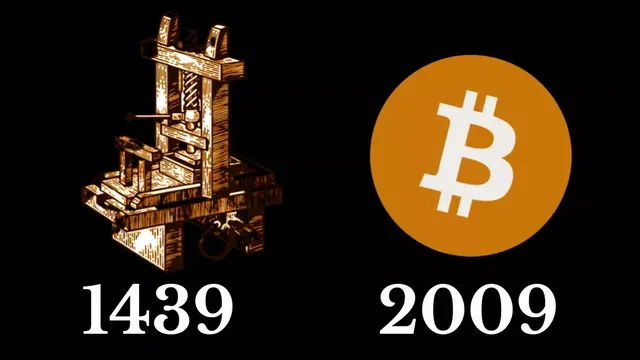
Bitcoin and the printing press, these are the stories of two disruptive innovations. Although these two innovations are separated by centuries, they have striking similarities. It tells what is basically invisible, changes the technical force of obedience motivation, and guides the evolution of social organization.
Distrust of institutions
Trust is a key factor in our ability to cooperate and trade . The more channels we have access to information, the stronger our ability to assess reputation and credibility. When it becomes easier to build trust by verifying the truth, those who benefit the most from previous opacity are often the first and loudest critics.
Making promises that are beyond your control or ability will definitely reduce your trust. This is why large organizations that rely on large audiences for survival will make commitments in a way that is difficult to measure on a loosely defined timeline, combined with proactively limiting access to the information needed to conduct such assessments.
But this is largely an institutional story about innovation and gaining power as the gatekeeper of the information flow.
The Great Famine and the Black Death
It stands to reason that innovation must be useful to society. Therefore, it is not surprising that it broke out just when it was needed. In the Middle Ages, Western Europe was under the control of the Roman Catholic Church (which was regarded as the main institution responsible for the well-being of people), which had undisputed influence and moral authority. However, two key events have made people question the seemingly unshakable dedication.
Between 1315 and 1322, famine swept across Europe, and the urban population decreased by approximately 10% to 25%. The bad weather caused flooding and crop failure, which in turn led to starvation of livestock and eventually a vicious circle.
Twenty-five years later, fleas carried by mice on European ships returning from Asia caused the deadliest epidemic in human history. The Black Death (1346-1353) caused 75 to 200 million deaths.
This catastrophic population loss has fundamentally changed the power structure between landlords and laborers.
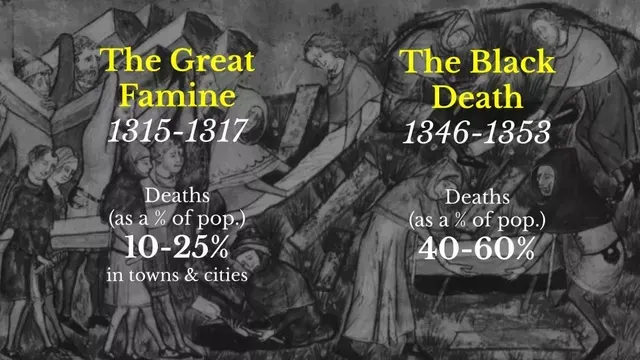
The global financial crisis and COVID-19
Today, the global financial crisis of 2007 and 2008 (and subsequent rescue measures, as mentioned in the genesis block of Bitcoin), coupled with the poor response of global institutions and governments to the COVID-19 epidemic, Has severely broken the social contract with citizen taxpayers. The misplaced incentive structure has created a moral crisis for elected officials and non-elected central bank governors.
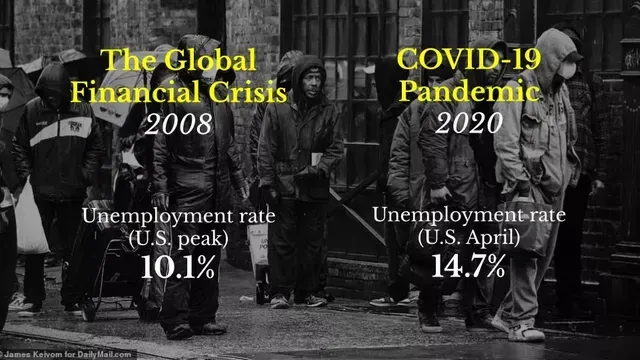
Telling a person that their cost of living has not increased and that their quality of life has declined is directly contrary to their life experience, and is also a way to prove ignorance, malice, or both. In a world where all kinds of market data are ubiquitous, the uneven distribution of inflation caused by unprecedented currency devaluation can no longer be concealed.
"More wealth inequality, more polarization, and more discordant trends are major threats to our collective future. All of this is caused by the same thing, namely, insisting on an economy designed for different times. System."-Jeff Booth "The Price of Tomorrow"
Heavy taxes are no longer tolerated
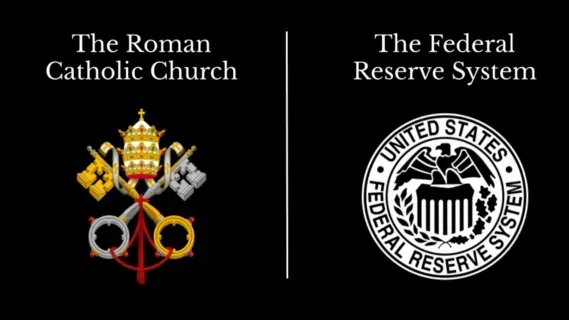
An authority that relies on tax collection requires a captured and obedient population, and several necessary conditions—a clearly defined and protected jurisdiction, incentives to create wealth in the jurisdiction, and prevention of sufficient numbers Barriers/deterrence measures for people to leave the jurisdiction with their wealth or expertise.
What Johannes Gutenberg and Satoshi Nakamoto provide us is a new way to transfer information across time and space without permission outside the authority of the organization. This poses a challenge to gatekeeper monopolies that rely on taxation to motivate them to act honestly and provide valuable services to retain customers.
About innovation
Paradigm shifts often come from market forces brought about by innovation, rather than top-down laws. The secret of its use is: (a) it is easy to be copied once discovered; (b) silence or neutrality (can be repaired on the edge).
For Gutenberg, the printing press was realized by a number of existing inventions, including pulp and paper, metal casting, and brewing machines. In addition, his own skills, knowledge and experience (as an intellectual, engineer, and businessman) may also explain why he can see and seize this opportunity for innovation so well.
In addition, before the advent of the printing press, glasses have been widely used. This allows a wider audience to not only read, but also to zoom in, allowing Gutenberg to reduce the size of the text, thereby reducing the number of pages required in the book.

Similarly, when Satoshi Nakamoto was designing the Bitcoin protocol, it was clear that over time, the cost of data storage will continue to decrease, thereby increasing the pool of participants who can operate nodes.
" The genius of Bitcoin is that it invented a digital currency that succeeded in the real world , thus piecing together fragments from decades ago in a semi-novel but extremely unpopular way, rather than creating Any new and esoteric breakthrough in mathematics or cryptography."-Gwern Branwen "Bitcoin is bad or good"
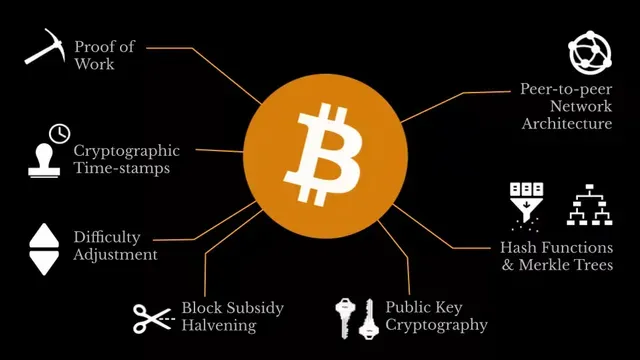
A key feature of Bitcoin and the printing press is that they are both silent innovations and cannot distinguish between what is being created and disseminated.
"Silent Network has become a platform for independent innovation, without permission, and on the edge. The result is an incredible series of innovations carried out at an even more incredible speed."-Andreas M. Antonopoulos "Why "Why Dumb Networks Are Better"
Knowledge monopoly
Nowadays, with the popularity of books, individuals are personally consuming, reflecting on, and criticizing written texts. This is a concept of elite management. The "truth" is no longer only conferred by the priests to the illiterate people in the church.
Printing presses and printing shops have appeared all over the European continent. Just like the spread of the Black Death, mass-produced printed books and texts are now spreading across Europe and the world with similar power. This was the beginning of mass communication and the end of the church’s monopoly on knowledge, including the interpretation of religious texts.
Due to the reduction in book costs, the literacy rate across Europe has risen sharply, which means that the original literacy elite will soon be challenged. In the end, it led to the emergence of the middle class.
Fast forward to today, and the popularization of global financial knowledge is the next important frontier for unleashing human potential and innovation. Like literacy in the Middle Ages, financial literacy is a privilege currently enjoyed by the rich and the elite. Similarly, as the literacy rate rises due to increased access to books, it can be speculated that financial literacy will also rise with the acquisition of sound currency. letter of agreement
We use protocols to transfer data between each other and machines every day, including SMTP (email), American Sign Language, TCP/IP, etc. These communication protocols are adopted by providing users with greater expression, loyalty, efficiency, or scale of communication capabilities.
Gutenberg's printing presses standardize the process of packaging and conveying information through the mass production of books and brochures. Previously, this process was done manually by trained monks as labor. His metal movable type printing system not only increased the speed of book production, but also reduced production costs, allowing information to be disseminated on a large scale.
Satoshi Nakamoto's Bitcoin turned currency into data. By standardizing transaction structures and significantly reducing the cost of verifying them, we can now conduct peer-to-peer transactions, and can span great distances.
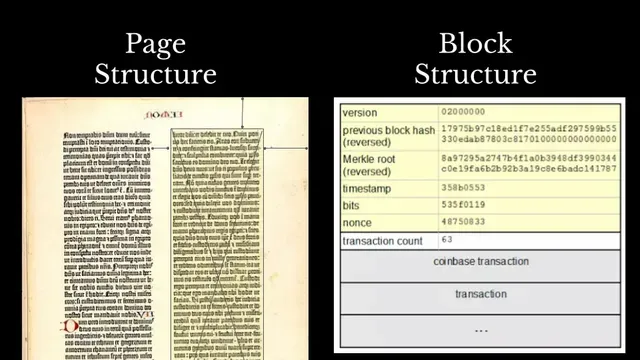
Open protocols like Bitcoin can enable anonymous transactions, which are an extension of the already popular anonymous digital identity. This kind of transaction is actually very difficult to combat, and the cost of combat is very high. For centuries, authors have published works anonymously so that readers can evaluate works based on their value rather than any related preconceived notions. It provides a voice for underrepresented people and protection for disadvantaged groups. Of course, this approach will definitely be abused, but we must weigh the pros and cons.
Law of power
In an interconnected post-hunter-gatherer society, language will follow the laws of power because this increases opportunities for cooperation and trade. This means that, as Schelling pointed out, we tend to tend to several common languages (English, Spanish, Hindi, Mandarin), and local dialects form a long tail. As we have determined, currency is also a language (used to communicate value) and follows a similar distribution. Although, with the emergence of the universal borderless currency, it is no longer limited to the population of one place, but the natural evolution of currency has also become a "winner takes all" phenomenon.
You might object that the government will not give up power, especially when it controls money production. Because it is as absurd as thinking that a dominant moral authority will give up power in information production and dissemination. However, the money printing machine provides a lesson for our future, and these technologies that threaten the existing power structure are often the targets of misinformation and intimidation activities sent by current officials or "related citizens". knowledge is power
The printing press, at first, gradually, and then suddenly weakened the power of the church, democratizing the way to record human knowledge.
"Because the church is trying to suppress printing press technology, most of the new books are published in the areas where the authoritative documents in Europe are the weakest. And this may also have close similarities with the US government's attempt to suppress encryption technology today. The church found that, The censorship system cannot inhibit the spread of disruptive technology, it only ensures that disruptive technology is used for the most disruptive purposes."-Rees-Mogg and Davidson, "The Sovereign Individual"
The design of the printing press allows it to be reproduced with common materials, which means that a town or group with sufficient scale, wealth, and propensity can have such a machine. This is the democratization of the publishing industry, and it also provides a protective cover for those who publish anonymously.
Due to the challenges of hand-written publishing and the inability to reach a large number of readers, scientific research in the past was a solitary pursuit, but it quickly accelerated in the following centuries.
Nowadays, society is more free, but it operates in unknown territory without precedent. Although the printing press itself is a neutral technology, anyone who can pay now can gain the ability to spread any kind of information. Humans must learn to control this new model, update their view of the world order and the process by which they transmit trust.
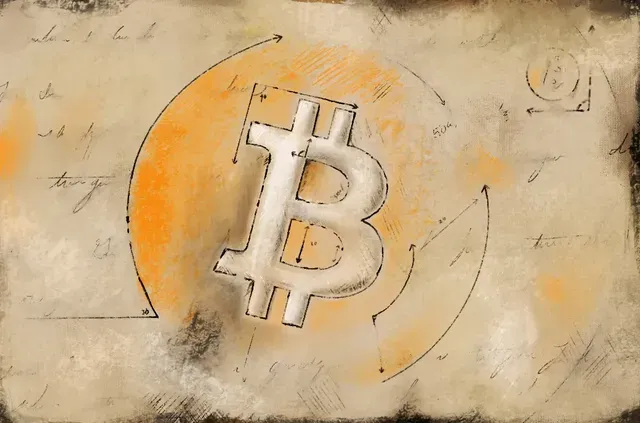
New paradigm
The Bitcoin protocol is the modern printing press. Just as Gutenberg's innovation democratized access to knowledge, Bitcoin also democratized access to sound money. The re-understanding of basic economic principles is observable and quantifiable, and it has already begun. This gives any individual living in a jurisdiction that protects freedom of speech the opportunity to give up their national currency system, and it also provides a way for those without freedom of speech protection to bypass their oppressors, because now, wealth and anything else A string of encrypted data makes no difference.
The Fed has similar control over social behavior and prospects. By setting currency prices, it is our modern Catholic Church. Just like the sayings spread by the people, “moderate inflation is good and necessary”; “consumption creates wealth”; “GDP growth is God”.
Changing times
Innovation from zero to one is irreversible , just like there is no way to put the wizard back into the bottle. For better or worse, the social structure is changed forever. Although printing technology will initially bring unexpected negative effects, few people today are willing to give up the benefits that humans have enjoyed over the past 500 years by relying on this technology.
As Francis Bacon, the co-creator of the scientific method, wrote in 1620, the printing press, gunpowder, and compass are inventions that will change the world forever.

"At the end of the Middle Ages, the unified church as an institution has become old and has become a major obstacle to productivity. The burden it imposes on people will only reduce the standard of living."-Rees-Mogg and Davidson "The Sovereign Individual"
However, not all jurisdictions will advance at the same speed . Those regions that effectively prevent and discourage the use of freedom of information technology (because of their management systems and locations) will gradually be left behind. This will have a profound negative impact on society, depriving followers of new ways of expression and scientific progress.

Just as the printing press ushered in the beginning of the Renaissance, Bitcoin is one of the basic technologies ushering in the information age. Bitcoin is also leading similar technological advancements in terms of stimulating the development of chip technology (ASIC) and lower-cost energy production and collection (Jevons paradox).
in conclusion
The boundaries of jurisdiction have once again become looser on the flow of information. However, this time, society has the ability to conduct value transactions without permission. If there is a specific lesson to be learned from this article, it is: information always finds a way out.
This consequence cannot be underestimated, and it is worth celebrating, because it will only harm those forms of authority that gain power only by restricting the flow of information and manipulating price signals.
When such authorities respond and try to prevent the adoption of freedom of information technology (which is only temporarily feasible), their people and jurisdiction will be affected in the long run. At that time, skilled people will find a way to leave, and the capital that can leave will eventually flow to the best place.
I’m sorry I can’t upvote more such a great post.
Posted Using LeoFinance Beta
@hykss thank you friends, it doesn't matter if you are reluctant to give upvote for this article
Not reluctant at all, quite the opposite, I gave you a 100% ;)
Posted Using LeoFinance Beta